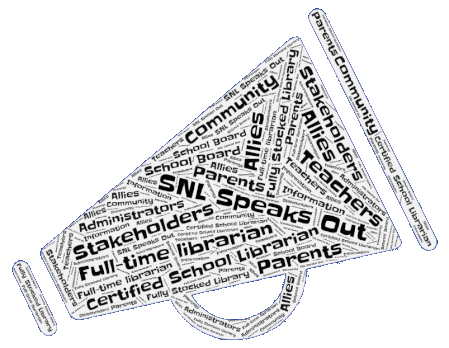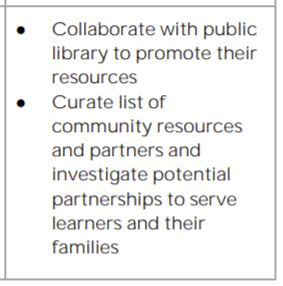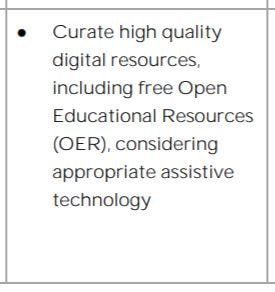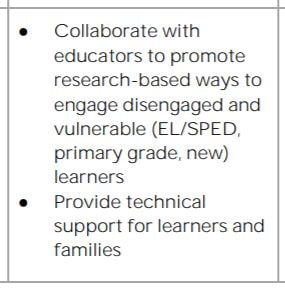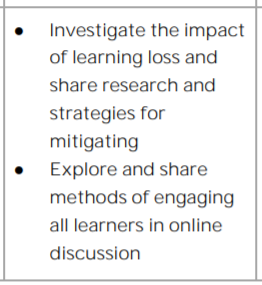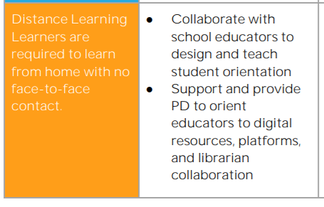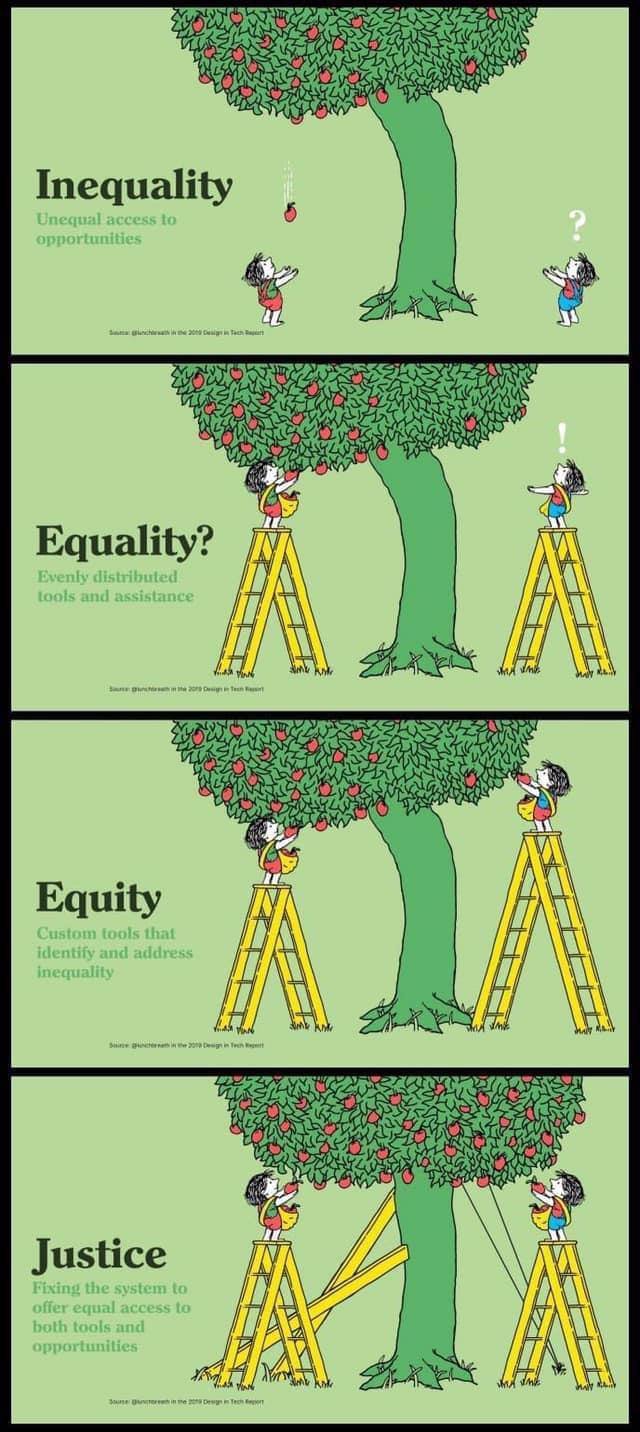|
by Dorcas Hand This post completes my effort (5 previous blogs since July 30) to expand your understanding of the AASL School Librarian Role in Pandemic Learning Conditions. I began several weeks ago, well before the start of school - and here we are in a school year that relies on Distance Learning. HISD campuses with librarians (only about 25% of schools) are able to take advantage of all the knowledge, training and skills those librarians bring to all five core areas that should be included in a campus librarian’s job description. Campuses that have chosen to reassign their librarians to classrooms are only using their skill as teachers. Teachers are definitely essential, but librarians using all their skills impact more than the 20-30 students in their classroom at one time whether virtually or in person; they impact all the students and teachers on their campus. Today we focus on Program Administration, the far right column. School librarians plan and administer a broad program that includes review and purchase of specific books (including ebooks and e-audiobooks) and other digital tools appropriate to the needs of students on a specific campus. They consider age, range of abilities, special challenges, special interests and/or focus areas for the individual campus curriculum. Librarians also do their best to ensure that all the teachers on that campus are aware of the resources most useful in their classes, in addition to direct teaching in collaboration with as many of those classroom teachers and curricula as possible. With a goal of encouraging both a love of learning generally and a love of reading specifically, librarians plan displays and events intended to encourage all students to love learning and reading. In distance learning, such events and displays are challenging, but I read of creative efforts to involve students in book selection and reading contests. Librarians also work with campus administration to forward campus goals in literacy and professional development. Librarians often reach beyond campus boundaries for additional options in support of student enthusiasm and academic success. The public library is one resource, and encouraging students to have a public library card is a great way to expand a campus collection. Libraries are themselves an ecosystem where the school student is also a patron of the public library, and may also reach to the community college or local university for more advanced resources, even a genealogy library in support of a tricky high school history topic.
During Distance Learning, librarians are key to ensuring that students and families are aware of how to access the district and TexQuest subscriptions to digital tools and resources. Librarians are also charged with ensuring that all students are trained in cybersafety and security methods that are appropriate to their age and access needs. With students at home under parental supervision, this cybersafety awareness is even more important than when students are accessing academic assignments and supporting resources under the benefit of campus firewalls and secure protocols. Cybersafety training also addresses cyberbullying and other potential peer threats that everyone must guard against. Campuses without librarians miss out on so much. And too often, the campuses without librarians include students most in need of the literacy and learning supports that a campus library offers families without books in the home, among other commonly cited home advantages of educational success. Questions of the Week
Previous SNL Houston Speaks Out posts expanding on the AASL infographic, School Librarian role in Pandemic Learning Conditions:
0 Comments
by Dorcas Hand In the first four posts, we’ve learned in a little depth that school librarians are Instructional Partners, Teachers and Leaders. To do any of those things they need the best information for each job - and their training beyond their teacher credentials has given them the perfect skill set. We’re still starting from the AASL School Librarian Role in Pandemic Learning Conditions. When school librarians collaborate with teachers or administrators as Instructional Partners, their primary role is to magnify the impact of the regular curriculum. They do this by curating resources - both content and tools - to co-teach with classroom teachers in order to engage students with memorable lessons that build skill in curricular content areas. Librarians often help administrators plan campus professional development in the same ways they work with teachers collaboratively.
When school librarians are teaching independently, they need similar carefully selected resources to bring students a “WOW” factor for a memorable lesson no matter the topic. What do librarians teach independently? Most people think of research skills as well as cybersafety and security. But readers should also realize that in Reader’s Advisory and literacy situations, librarians are teaching a love of learning and a pleasure in finding personally useful information, not to mention the “just-right” book for each reader. Reader’s Advisory requires both an intimate knowledge of the collection and strong skills in identifying and purchasing new resources that will enhance the collection over time - across content, grade levels and pleasure reading. Information skills are the foundation of everything a school librarian does, though you may seldom see them directly. What the campus and community see is just the perfect resources offered as needed based on the librarians training as a teacher and curriculum specialist. The skilled librarian makes her work look easy. As leaders, librarians use these highly developed information skills to successfully inspire the entire campus community to engage enthusiastically in learning. But one of the biggest pieces of this information skill set is knowledge of subscription databases: what they are, how to access them and when each is most useful. HISD and the state spend big bucks on these resources (HISD Digital Resources), but students and teachers need the guidance of librarians to get the most out of these tools. Without a librarian, a school community might be unaware of their existence. Students need to be taught to use and search for information in a developmentally appropriate way. Librarians introduce students to using boolean searching, filtering a search to get manageable results, and which databases have special applications for special needs as an example. These district resources are vetted (often by librarians) and purchased with the needs of K-12 learners. Available 24/7 and they are ideally suited to situations like we are presently encountering with Covid-19. There are many free resources that are useful to students in addition to textbooks and databases, and librarians are the gateway for them - both by teaching search skills and cybersafety, and by offering specific free websites to students and teachers when the classroom assignment needs just that information. OER - Open Educational Resources - is a new aspect of information that requires both understanding of copyright constraints and awareness of OER tools that are not advertised in traditional channels. These are coming into more use at the university level, and are beginning to work their way to K-12. Librarians work to ensure that all students can access appropriate resources, including students with extra challenges. Adaptive technologies to support vision or hearing can be embedded into databases and websites, and librarians know to deploy those technology aids as needed. If you the school board member, did not grow up appreciating the skills librarians bring to the table, maybe you should investigate how they can help you in your job on the school board. In addition to campus librarians across your Board districts, you might reach out to HISD Library Services for help understanding how hard they work to support the campus librarians, and how they might help you as well. Questions of the week:
So far in this series, we have looked at the big picture of school librarians in Distance Learning situations, and at Librarians as Instructional Partners and Teachers. Today, we’ll consider Librarians as Leaders. [School Librarian Role in Pandemic Learning is the full document from which these posts stem.] Think of school librarians as magnifiers: they have the knowledge and skillset to magnify the impact of classroom learning. When the librarian teams with a classroom teacher to build a stronger research component for the classroom topic, the learning is stronger and the academic effect magnified. Building on their skills as Instructional Partners and Teachers as they remain constantly aware of the big picture curricular needs, librarians bring curriculum design skills to the planning table - some include student research projects, but some “just” work behind the scenes to help the classroom teachers shine by offering additional content that spices up a textbook lesson. Especially in these times of distance learning, librarian knowledge of digital tools and resources can dramatically expand every teacher’s toolbox for great lessons. Librarians not only introduce new options to teachers to see if they are the right fit; they complete their leadership role by teaching the teachers AND the students how to use these new resources.
Leadership is stepping out of one’s own enclosed job space to help the broader community. Librarians are leading every day as they offer ideas to teachers, administrators, and students, ideas that contribute to stronger student literacy skills and academic achievement. School board members are leaders in our community. Strong elected leaders want to be sure the entities they supervise, in this case the schools, are filled with strong leaders to help forward the community (specifically the students) toward their goals of literacy and academic success, even excellence. Campus principals and other administrators should be able to rely on great librarians to help every teacher look great and every student be successful. But no one can rely on a strong librarian if there is none in place. Your questions of the week today: Ask your principals: What is an example of leadership as defined here demonstrated by the librarian on their campus? Ask yourself: Which librarian in an HISD school would I like to meet to learn more about how librarians might benefit HISD more? (No need to limit yourself to one. Set up a Zoom or Facetime conversation with as many as you like!) By Dorcas Hand I’m still talking to you, the HISD School Board, about the details of the AASL chart School Librarian Role in Pandemic Learning that sorts out various aspects of the job in different modes of learning. Today we’re building from Instructional partner to TEACHER. As school opens, what role is more essential to student success than that of TEACHERS? I reminded you last week, but it bears repeating today: certified librarians in Texas are also certified Teachers with at least two years of full time classroom experience. They know about lesson plans and curricula, literacy skills and state standards. And they apply this knowledge every day as they work with students, teachers, parents and campus administrators.
In addition to teaching research skills in support of classroom topics planned collaboratively with academic teachers, librarians TEACH every day in overt and subtle ways that advance student achievement.
Whenever a student or teacher asks a question in the library, the teaching begins as the librarian leads the "asker" to the answer rather than just handing it over. That way, skills transfer forward to the next time an information resource is needed when the asker can begin to search independently. Proactive librarians in the pandemic are finding ways to join teachers in their virtual classrooms so that they know what topics are in focus currently, what are the ability levels of the students, and what are the interests of the students. This helps the librarian know how to focus their teaching as the year goes along, for new topics but the same students. School Librarians are teachers at heart; they just wanted a bigger classroom. And so, I leave you again with a question: What are some examples of your librarian’s teaching? Please show me their student-facing digital presence? And, “What don’t I know about the librarians as teachers in my schools? How can knowing more about them help ME, the School Board member, do MY job better?” by Dorcas Hand My last post discussed the Remote Learning impact of school librarians, as explained in the new PDF School Librarian Role in Pandemic Learning Conditions from the American Association of School Librarians. That table is comprehensive, addressing 5 aspects of the school librarian’s job in various modes. This week, I want to look at just one block from the full table, the one that considers Librarians as Instructional Partners in Distance Learning. "Distance Learning Learners are required to learn from home with no face-to-face contact." I've copied the words from the orange box to be sure you can read them. With this in mind, I want you to consider how different online learning is for the teacher and the student; part of the role of the librarian is to help ease the situation for both. Here are some ways to think about what that means.
Please remember that the certified school librarians in Texas have at least 2 years of classroom teaching experience, a Masters degree, and at least 18 hours of specialized graduate-level education in library management. They are some of the most qualified TEACHERS on a campus, and they work with ALL students and ALL teachers and administrators. Any campus without a certified librarian is missing out on a huge opportunity to enjoy better support for teachers and students to connect to the perfect resources for their needs. As a school board member, here are some questions you might want to ask principals on your campuses to establish that these things are happening:
Looking beyond online instruction, here are are examples of what you should expect to see in all schools staffed by a certified librarian. You should see the librarian doing these things whether digital, hybrid or in person classes are in session.
If the principal can’t show you specific examples, perhaps your request will serve as a prompt that they discover for themselves all the work the librarian is doing - or to consider adding a librarian to the faculty. HISD has some amazing librarians working hard to be sure the students on their campuses are getting great books and other digital resources to read for fun and in support of classroom assignments. They are also working to ensure that all the teachers have the perfect resources and training to plan and deliver outstanding lessons whether remote or in person. When campuses open again, be sure to visit your libraries to see the evidence first hand, and to understand better what those librarians need to be even more successful. I’ll be back soon to look at other aspects of school librarians’ work, but today I leave you to wonder: “What don’t I know about school librarians as Instructional Partners in my schools? How can knowing more about them help ME, the School Board member, do MY job better?” By Dorcas Hand
Here we are getting ready for a new school year – and COVID19 is still wreaking havoc. There is little clarity around how, when or how little of the time students will be on campus. In all three of those possibilities, HISD’s school librarians should be key players in inspiring and supporting a student’s love of learning, a teacher’s creative teaching methods, and overall literacy skills. During the online instruction phase, you may see librarians present information in conjunction with the classroom instruction, reading stories, sharing ideas for how to search or what to read, and pointing students and staff to the best available digital resources . Behind the scenes, librarians are participating in virtual meetings with school staff to share information about the curriculum or creating and recording instructional videos. Once schools reopen, the library can help by providing ways that small groups can work together and be supervised to assure social distancing. Librarians can also continue to support online learning experiences with those students that opt to learn from home instead of returning to school. Once schools are back in F2F session full time, the lessons librarians have learned about remote learning will continue to benefit their schools in creative ways. The American Association of School Librarians recently published an infographic, School Librarian Role in Pandemic Learning Conditions. HISD leadership – elected and in the administrative hierarchy – can learn from this short overview. For each of three formats education may take as 2020-2021 begins, five aspects of the school librarian’s job are spelled out – and that’s where I want to focus your attention today.
Uncertainty is rampant in the entire world currently as we wonder what is the best course of action in the face of the ongoing COVID-19 crisis. But a school librarian on your campus can be a strong support for the campus and district leadership in every situation. Students Need Libraries (SNL) is based here in Houston, one of the most diverse cities in the world. George Floyd grew up here. His name and life are now a catalyst for so much hurt, protest, and hope – hope that the new waves of activism will result in long overdue systemic change. SNL sees the need to work against racism, the insidious assumptions we have all grown up with no matter our racial heritage. In that effort, SNL today opens a curation of resources to our school librarians, and to our school library stakeholders throughout Houston, in support of improving our understanding and implementation of racial justice. We also hope these resources support our K-12 students to understand and appropriately join activist efforts towards racial justice.
SNL has been working for Equity of Access as long as we have been active, but recent events raise our compulsion to curate these pages. We hope that librarians will refer here for tools to increase community understanding of the issues and their impacts, and to share these resources with their schools. We also hope that stakeholder allies* of school libraries, and even readers who don’t yet understand how to be stakeholder allies, will also find these pages useful because they will stay easy to find even after the dust begins to settle and the access to these resources begins to hide as the media turn to other topics. These pages published today are just the start. We are working to cull the most appropriate choices for our community of K-12 librarians, teachers, parents and students. Please return often to see what is added as we move towards a more just world. Currently (June 20, 2020), posted pages include:
Still under construction:
We thank Velda Hunter, librarian at HISD's Yates High School, and friend James Martin, YA author and bookseller, for their support in vetting the links included. *A Stakeholder Ally is anyone who supports equity of access by all K-12 students in local Houston public and private schools to fully staffed and fully funded school libraries. Librarians, teachers, parents, community members and students are all stakeholders in the goal of strong education for every student, a goal to which school libraries are instrumental contributors. Houston ISD and other school administrators, Houston ISD and other school board members and elected officials in policy- and decision-making positions are also stakeholders. The Houston community is stronger when EVERY K-12 student has strong literacy skills and a love of learning, both of which are fostered by strong school libraries across the districts.
No apple trees mean no books/materials for the students. Some schools have apple trees (libraries) but they are staffed by clerks or in some cases teachers who may not be prepared to effectively help students access the apples (books). Schools that offer non-librarian staffing may have achieved the level of EQUALITY that has a tree, but their students are on the side with no apples and a too short ladder; they are not receiving the same services as libraries staffed by librarians. In the illustration, staffing is represented by a variety of tools (ladders and baskets) to help students get the apples (books).
Schools in high poverty areas that have librarians and libraries are approaching EQUITY but they still need a taller ladder and stronger funding and resources. The librarian can support program offerings, but actual books and other resources require budget support to meet the needs of students. When HISD figures out how to support fully staffed and fully funded school libraries for every campus, HISD will have begun to offer JUSTICE to all students in the form of equity of access and equality of resources. All students can benefit from a strong library program. Staffing libraries with librarians helps assure that students will be getting the same educational benefits across the district. JUSTICE is attained when all students have access to the library no matter where they live, that all libraries are staffed with a librarian, and that all libraries have a well-funded collection that represents the needs and interests of the population served (lots of beautiful apples). Where is the JUSTICE in providing libraries for some but not for all? This is a key question for both Houston ISD administration and its school board. The artist is Tony Ruth: Maeda, John. "Tony Ruth's Equity Series (2019)." CX Report, 2 June 2020. It took some digging to track the actual artist following the tweet trail backwards, but that's what librarians do! As our self-isolation continues, I find I'm being very creative with my time. And the resources to help me do that are so plentiful that I cannot keep them to myself. So I have added a section to this website called "2020 Remote Learning Resources." as I began collecting links that came my way, I was thinking of the standard things a school librarian needs in normal times - but as COVID19 keeps us constrained, I found my librarian head realizing that what is needed is not normal. Actually, I began these compilations a couple of weeks ago - but today added a host of new materials and subpages.
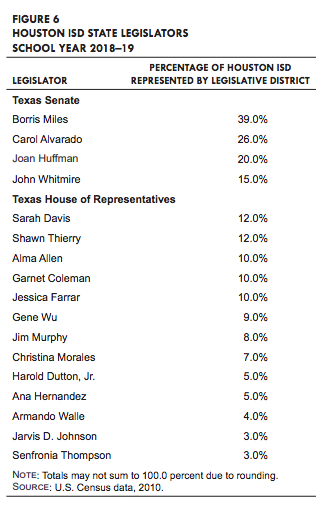 Note: Anna Eastman now holds Jessica Farrar’s seat. Contact List for these Texas Legislators: https://drive.google.com/file/d/1WcHUpXrYPgGB7Pyai5X0JpHN6hp9rdY1/view?usp=sharing Note: Anna Eastman now holds Jessica Farrar’s seat. Contact List for these Texas Legislators: https://drive.google.com/file/d/1WcHUpXrYPgGB7Pyai5X0JpHN6hp9rdY1/view?usp=sharing By Dorcas Hand In November, we at SNL read the Legislative Budget Board (LBB) Report (Cited at the end of this post.). In addition to the many issues mentioned, Carly Brown noted this table (Fig. 6, p.12) which details by percentage who in the Texas State Legislature is responsible to voters in HISD. If you want to read the section about HISD school libraries, pages 59-61 will give you the details. I quote the LBB opening paragraph here: “The district lacks a process to ensure that its libraries’ budget, staff, collection size, and collection age align with public school library standards. These standards provide students at different campuses with variable access to high-quality library services. Campus principals have full discretion over staffing and budgets for campus libraries, resulting in inconsistent campus-level library services. Some campus principals choose to offer high quality campus libraries staffed with certified librarians, and other campuses have inadequate or nonexistent library services.” And towards the end of the section, “Nationwide, research suggests that reading, writing, and graduation rates improve where campuses employ certified school librarians. TSLAC’s 2001 analysis of school libraries in Texas, presented in the publication Texas School Libraries: Standards, Resources, Services, and Students’ Performance, determined that school libraries have a measurable impact on student achievement. At the elementary school and middle school levels, approximately 4.0 percent of the variance in state test scores was attributed to school libraries; that percentage more than doubled to 8.2 percent at the high school level. Library variables, including library staffing and items per student, outweighed the effects of other campus variables, including computers per student, teacher experience, and even teacher turnover ratio.” Back to the list of our representatives. Yes, we have our elected local School Board – but we are facing a potential state takeover, in which case our state representatives need to be more aware of what’s happening here at home. These are the people we vote into office, and on whom we rely to support our schools at the state level. SNL suggests that you the voters begin to write your representatives about the state of school libraries in Houston ISD. Tell them what you want to see. And tell your school board representative and HISD administrators from campus to Dr. Lathan that you are doing this. SNL will start sending letters like what we send to the school board, letters that illustrate the power strong school libraries can have to improve student success. Join us! The list of their emails and phone numbers can be found on this Contact List. Downing, Margaret. “Not to Pile It On But the Texas Legislative Budget Board Assessed HISD and It’s Not Good News” (Houston Press, Nov.8, 2019) Legislative Budget Board. “Houston Independent School District Management and Performance Review” (November 2019) |
AuthorThis blog is primarily authored by Debbie Hall and Dorcas Hand, but guest authors are welcome. If you have an idea to share, please contact our email below. Debbie is a retired HISD librarian and Library Services Specialist. Dorcas is a retired school librarian who remains active in AASL/ALA. Both support increased equity in school library access and support for all HISD students and campuses. Archives
November 2023
CategoriesClick to our Facebook page.
|
